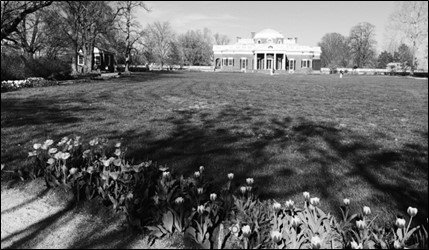Outside of Portland, Maine, sits the small town of Gray. During the Civil War, the population was around 1,700 residents. While Gray has experienced growth, the area gives the vibe of a typical small American town. Though Maine is one of the least-populated states in the nation today, surprisingly, Mainers played a pivotal role in the U.S. Civil War, seeing action in major battles such as Antietam and Gettysburg. However, in 1862, it was the Battle of Cedar Mountain that brought devastating news to the town of Gray.
Recently promoted Union Lt. Charles H. Colley was injured on Cedar Mountain, taking a “bullet to the knee.”[1] The Lewiston Falls Journal reported his injury on September 25, 1862, “Charles H. Colley, Gray, Co. B, Cavalry, shot wound in leg, improving slowly.”[2] Colley’s wound ended up infected, ultimately killing him.[3] Informed of his death, the family arranged for his body to be sent home. World War I Veteran and Mainer George T. Hill shared what happened next:
When the casket, with the soldier’s body, arrived, it was opened, and there was the body of a stranger in Confederate uniform. An attempt was made to correct the mistake, but communications were slow, and, after waiting several days without receiving any word, the Stranger was buried on a vacant lot.[4]
According to the townspeople, every effort was made to return the unknown soldier to the Confederate Army. However, Washington had no inclination to assist in sending this unknown Confederate soldier back home. Not able to wait much longer, the women of Gray decided to bury the unknown soldier in the Gray Village Cemetery.[5] Colley’s mother reportedly said, “The grave has already been prepared, and somewhere there is a mother just as I who has lost her son. Use the grave already prepared for my son, and in God’s grace, she may do the same for me.”[6] The women raised enough money to purchase a headstone for the Confederate soldier, which reads: “Stranger. A soldier of the late war. Died 1862. Erected by the Ladies of Gray.”[7]
Today if one were to visit the grave, a Confederate flag remains. This unknown soldier is one of seven known Confederate soldiers buried in Maine. As the years have continued, the care for this grave has been passed from the women of Gray, to the Grand Army of the Republic, Sons of Union Veterans, and now the Ladies Relief Corps auxiliary. It remains one of the few locations in Maine where you can find a Confederate flag on public land. The story is touching for all, as it can be heard in the song “The Stranger” by the Squid Jiggers. View here:
Upon petitioning the Army, the Colley family buried a soldier they believed was their son in the same cemetery. However, recent research has shown the body of Lt. Charles H. Colley buried in Alexandria, Virginia. To this day, it remains unknown if a second stranger is buried in Gray, Maine.
Not many records exist on this mixup of sending a Confederate soldier to Gray, Maine. However, the reader can find comfort that the soldier was buried with honors and compassion by the women of Gray. In fact, it became a Colley family tradition to visit the gravesite and honor the fallen Stranger, well into the 1960s.[8] Likewise, the Daughters of the Confederacy visited the gravesite yearly.[9]
The soldier who wore gray ended up in Gray and remains a large part of the community today. One Maine historian Brian Swartz noted, “I enjoyed discussing The Stranger. His is a lonely grave, far from home.” If you are ever in Maine, be sure to show respect to the Stranger in Gray. May the oversight of his grave continue for the years to come.
[1] Thomas D’ Agostino & Arlene Nicholson, Strange New England (Charleston: The History Press, 2021), 69.
[2] Lewiston Falls Journal, “Maine Men in Hospital,” Lewiston Falls Journal. September 25, 1862, https://www.newspapers.com/image/legacy/827800261/?terms=lt.%20colley%20gray%20maine&match=1 (accessed September 21, 2022) [3] Agostino & Nicholson, Strange New England, 69. [4] George T. Hill, History, Records and Recollections of Gray, Maine (Portland: Tower Publishing Co., 1978), 338.[5] New England Historical Society, “The Ladies of Gray, Maine, Bury an Unknown Confederate Soldier,” https://www.newenglandhistoricalsociety.com/the-ladies-of-gray-maine-bury-an-unknown-confederate-soldier/.
[6] Harry A. Packard, Grit Magazine, The Stranger Remembered, May 26, 1968.
[7] Thomas D’ Agostino & Arlene Nicholson, Strange New England (Charleston: The History Press, 2021), 70.[8] Harry A. Packard, Grit Magazine, The Stranger Remembered, May 26, 1968.
[9] Ibid.Note: The views expressed on abbevilleinstitute.org are not necessarily those of the Abbeville Institute.







The people in Gray understood that no matter how the war came out, we were going to share a continent. Before the words “With malice toward none and charity for all,…” were spoken, they lived them.
At that time, a nation mattered. Now, the globoccultists want nations destroyed. You will not have rights guaranteed by the Constitution…you will have rights guaranteed by the prostitutes employed at the UN.
Thank you for such a moving article.
Oooooh….
Just wait till the woke Communists find out about this!
“This shrine to racism has got to go.”
I can hear them now…in fact, since I am a masochist and listen to National Public Radio’s “All Things Considered”, I can actually hear their voices right now!
My brother worked for a man from northern Maine. When he called him a damn yankee, they traded blows, but brother Ben’s pretty scrappy.
They got along though and always worked to Skynyrd. Some good people from northern Maine and New York, but I’m sure most of them have migrated southbound.
This was a very touching article. It is sad to think that the mothers of both soldiers never got to bury their sons, but it is truly touching that the mother of Colley buried the stranger. I also had no idea there were only 7 graves in Maine of Confederate soldiers. Well-written articles and a very great story of a mother of a Union soldier paying respects to a Confederate soldier.